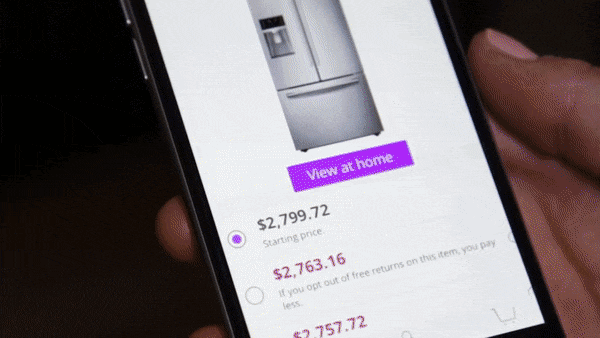
Augmented reality (AR) and virtual reality (VR) are two rapidly developing technologies with a wide range of applications. AR overlays digital information onto the real world, while VR creates an immersive digital environment that users can interact with.
Both AR and VR are having a significant impact on the workspace, school space, and everyday life. In the workspace, AR and VR are being used to improve training, safety, and productivity. In the school space, AR and VR are being used to create more engaging and immersive learning experiences. In everyday life, AR and VR are being used to enhance entertainment, shopping, and communication.
Impact on the workspace
Training
One of the most significant impacts of AR and VR on the workplace is in training. AR and VR can provide trainees a realistic and safe environment to practice their skills. For example, Boeing is using VR to train its assembly workers on how to build new aircraft. The US military is using VR to train soldiers on how to operate weapons and navigate different terrains.
Safety
AR and VR can also be used to improve safety in the workplace. For example, AR glasses can provide workers with real-time information about hazards and safety procedures. AR can also be used to guide workers through complex tasks. For example, General Electric is using AR to help workers repair jet engines.
Productivity
AR and VR can also be used to improve productivity in the workplace. For example, AR can be used to provide workers with hands-free access to information and instructions. VR can be used to create virtual meeting spaces and collaboration tools. For example, Microsoft Teams now offers VR meeting spaces, allowing users to collaborate in a virtual environment.
Impact on the School Space
AR and VR are being used to create more engaging and immersive learning experiences. For example, AR can be used to bring science textbooks to life or to allow students to explore historical sites. VR can be used to transport students to different places and times or to allow them to experience complex concepts firsthand.
For example, the Franklin Institute in Philadelphia, Pennsylvania uses AR to bring its science exhibits to life. Students can point their smartphones at the exhibits to see additional information and animations. The University of North Carolina is using VR to transport students to different historical sites and allow them to experience them firsthand. For example, students can take a virtual tour of the Roman Colosseum or the Great Wall of China.
Impact on everyday life
AR and VR are being used to enhance entertainment, shopping, and communication in everyday life. For example, AR can be used to play interactive games or to try on clothes before you buy them. VR can be used to watch movies and TV shows in a more immersive way or to attend virtual concerts and sporting events.
For example, IKEA is using AR to allow customers to try on furniture in their own homes before they buy it. Customers can point their smartphones at the place where they want to place the furniture to see how it would look. The North Face is using VR to allow customers to experience their products in a virtual outdoor environment. Customers can hike through a virtual forest or climb a virtual mountain.
AR and VR are also being used to improve communication. For example, AR can be used to translate languages in real-time or to provide sign language interpretation. VR can be used to create virtual meeting spaces and collaboration tools. For example, Facebook is developing AR glasses that can be used to translate languages in real-time and provide sign language interpretation.
Conclusion
AR and VR are two rapidly developing technologies with a wide range of applications. AR and VR are having a significant impact on the workspace, school space, and everyday life. As these technologies continue to develop, we can expect to see even more innovative and ground-breaking applications.
https://spectrum.ieee.org/vr-and-ar-course-program
https://about.fb.com/news/2023/09/impact-of-vr-and-ar/
https://itmunch.com/breaking-barriers-exploring-the-future-of-vr-and-ar-itmunch/
https://www.xrtoday.com/augmented-reality/the-role-of-ar-in-the-future-of-work/
https://techround.co.uk/tech/apple-vr-headset-future-virtual-reality/
Engine used: QuillBot









